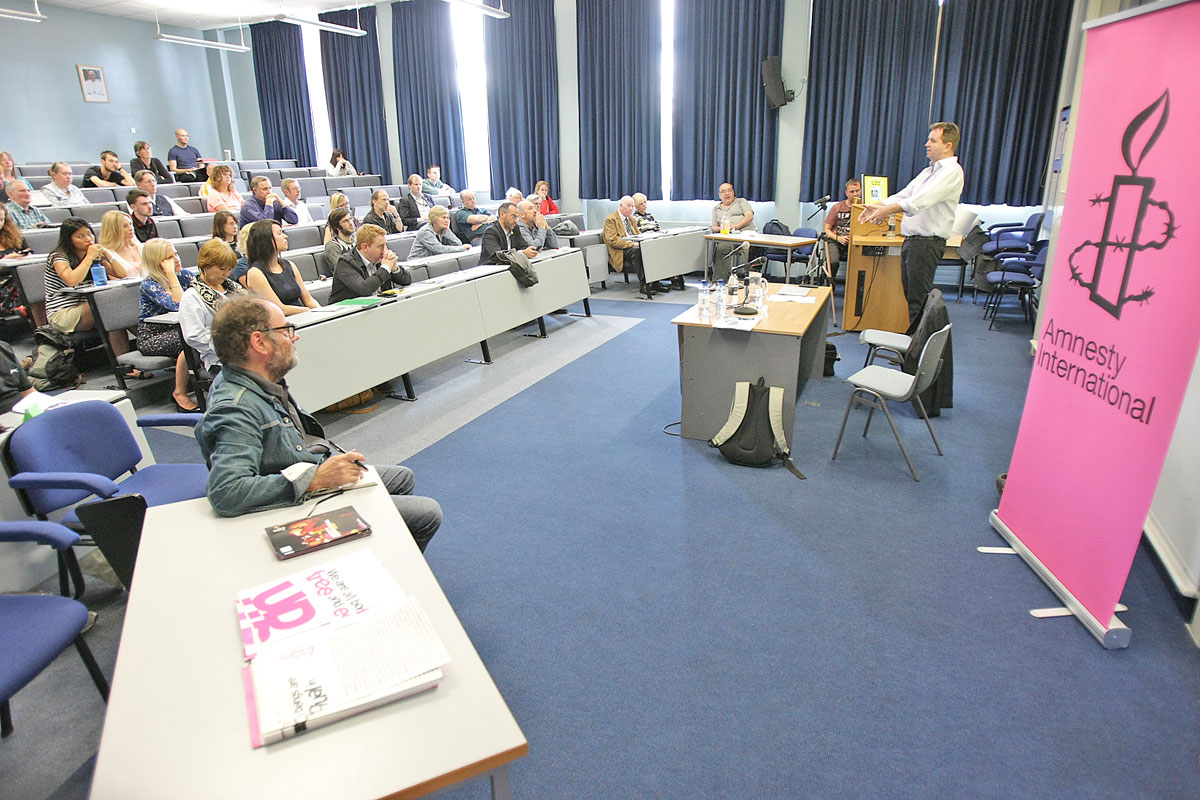Did you know that in 1915 German soldiers ‘crucified’ a Canadian sergeant to a barn door in Belgium pinioning him with bayonets through the arms, legs and throat?
And did you know that around 190,000 AK-47s, supplied by the American and British governments to the Iraqis have been ‘lost into thin air’? The missing weapons now in the hands of militia groups and being used to commit atrocities across the region.
“We have effectively armed ISIS,” states investigative journalist Iain Overton who discusses these and other issues at the annual Amnesty International journalism event at St Mary’s College on Tuesday.
Overton, who has covered the civil war in Somalia, sex trafficking in Britain and India as well as the Wikileaks documents and the prolific use of US drones, is illustrating the application of investigative journalism to historical and topical events.
“Everyone has a human rights story to tell,” he believes and the crucified soldier was his.
The son of a British Army officer who spent three years of his childhood in the north, Overton started out in journalism on a tv series on ‘40s Britain. The ‘Finest Hour’s subsequent revelations of a British government cover up on the number of Blitz deaths strengthened his interest in human rights, initially nurtured by his grandfather, a former political prisoner in Peru.
However it was his reporting on the civil war in Somalia in the '90s - still ongoing and largely unreported - which brought home to him the ethical and moral requirement of his profession. Having travelled to the Solomon Islands to make a documentary about sharks, he found himself as a lone journalist reporting the ‘intimate atrocities’ of the civil war. At that point the then 28 year old realised "the moral imperative" of his work.
That moral imperative led to a host of undercover investigations including Vice with Donal MacIntyre on the horrors of sex trafficking in Britain. Their investigations led to a number of arrests. His reporting on ‘Death by Drones’, the US military's prolific use of drone attacks were picked up by news outlets globally and led to a dramatic reduction in their use. This he sees as one of his professional triumphs.
However his moment of hubris came in 2012 after tweeting a teaser about the McAlpine paedophile claims, a story which The Bureau of Investigative Journalism, of which he was then editor, was working on with Newsnight. "Beware of hubris" he warns and the moral responsibility of truth. He also warns of the "addictive allure” of Twitter and Facebook for young journalists insisting simply "knocking on doors is a hugely powerful way of finding the truth".






